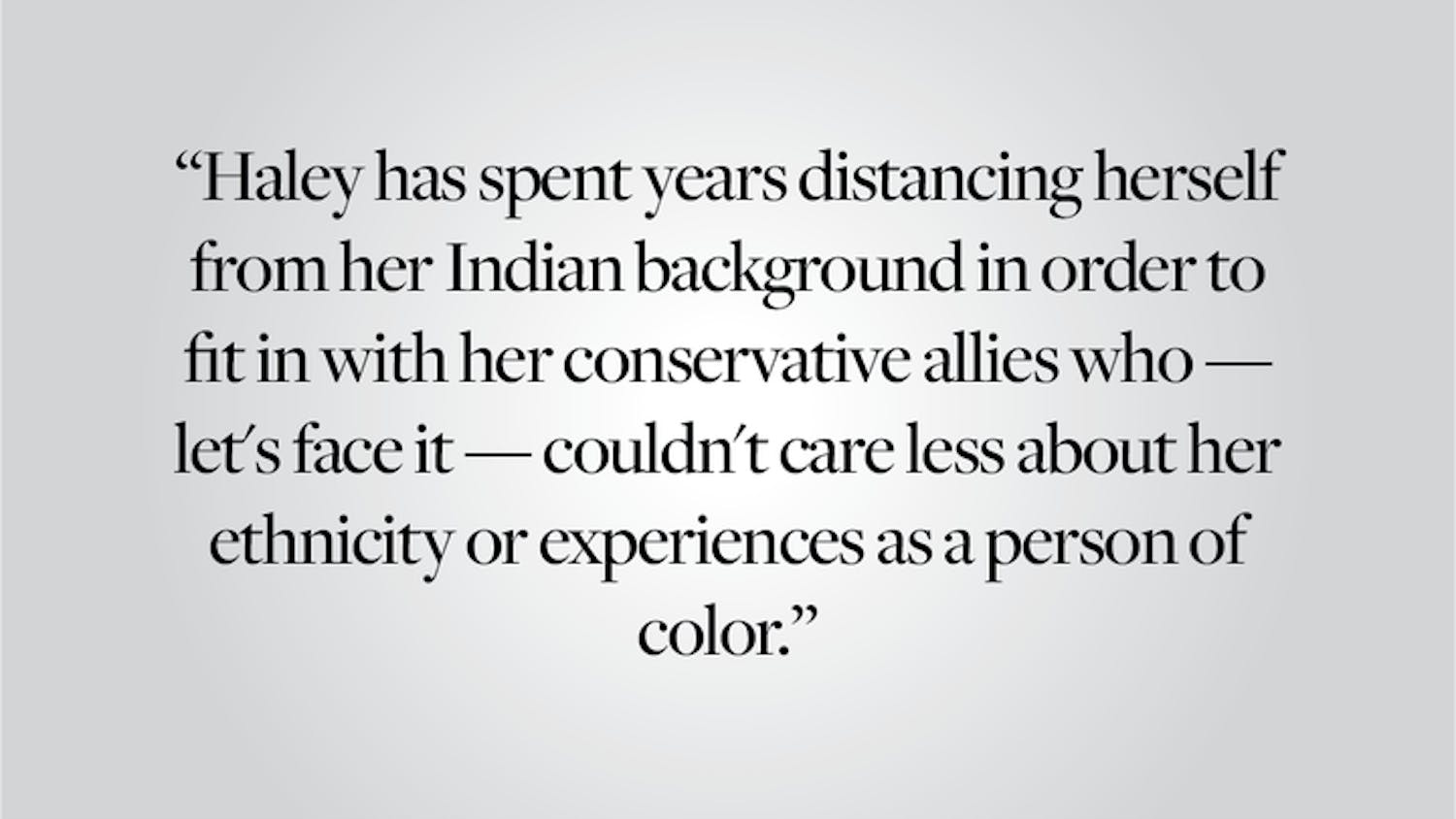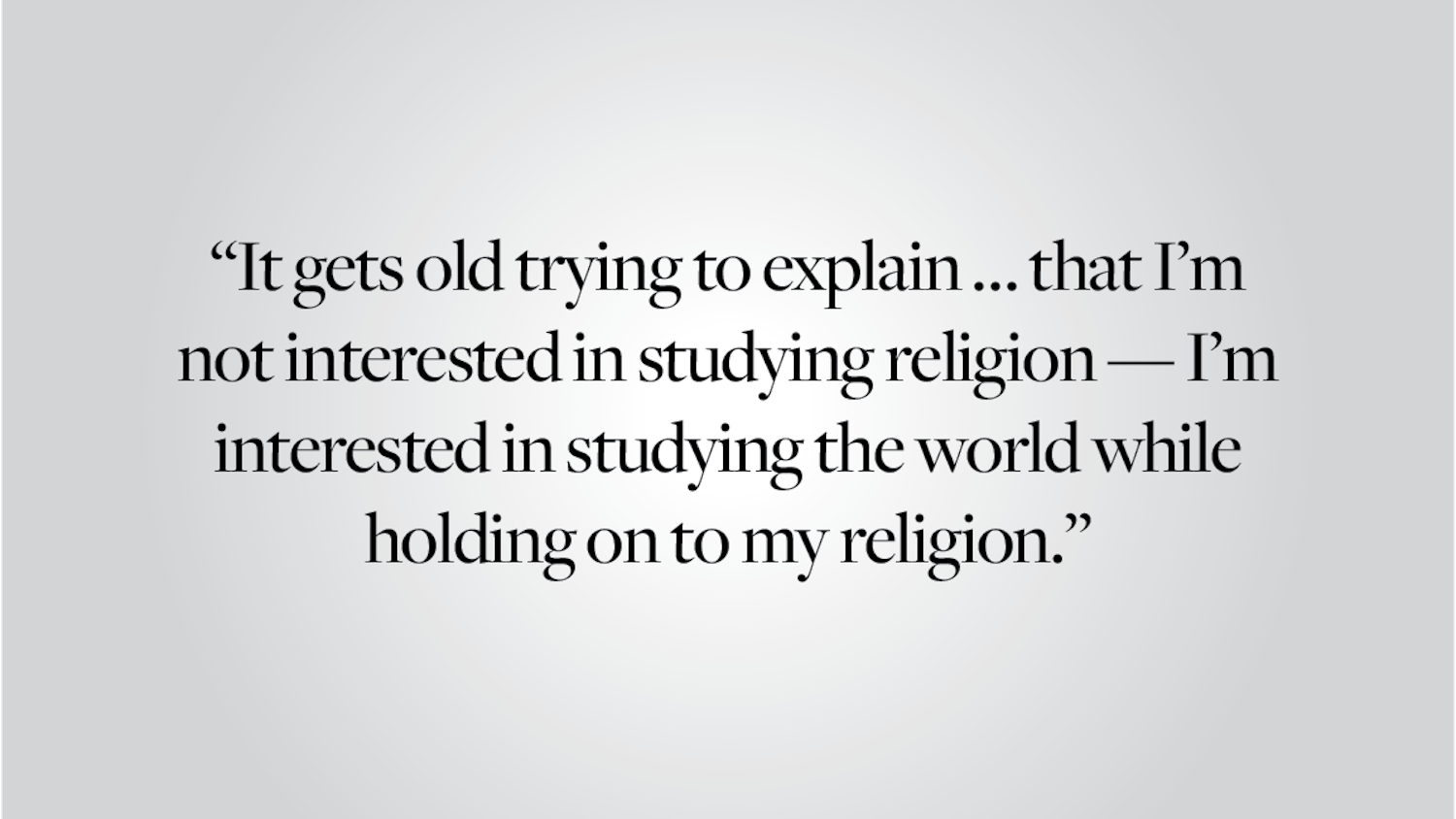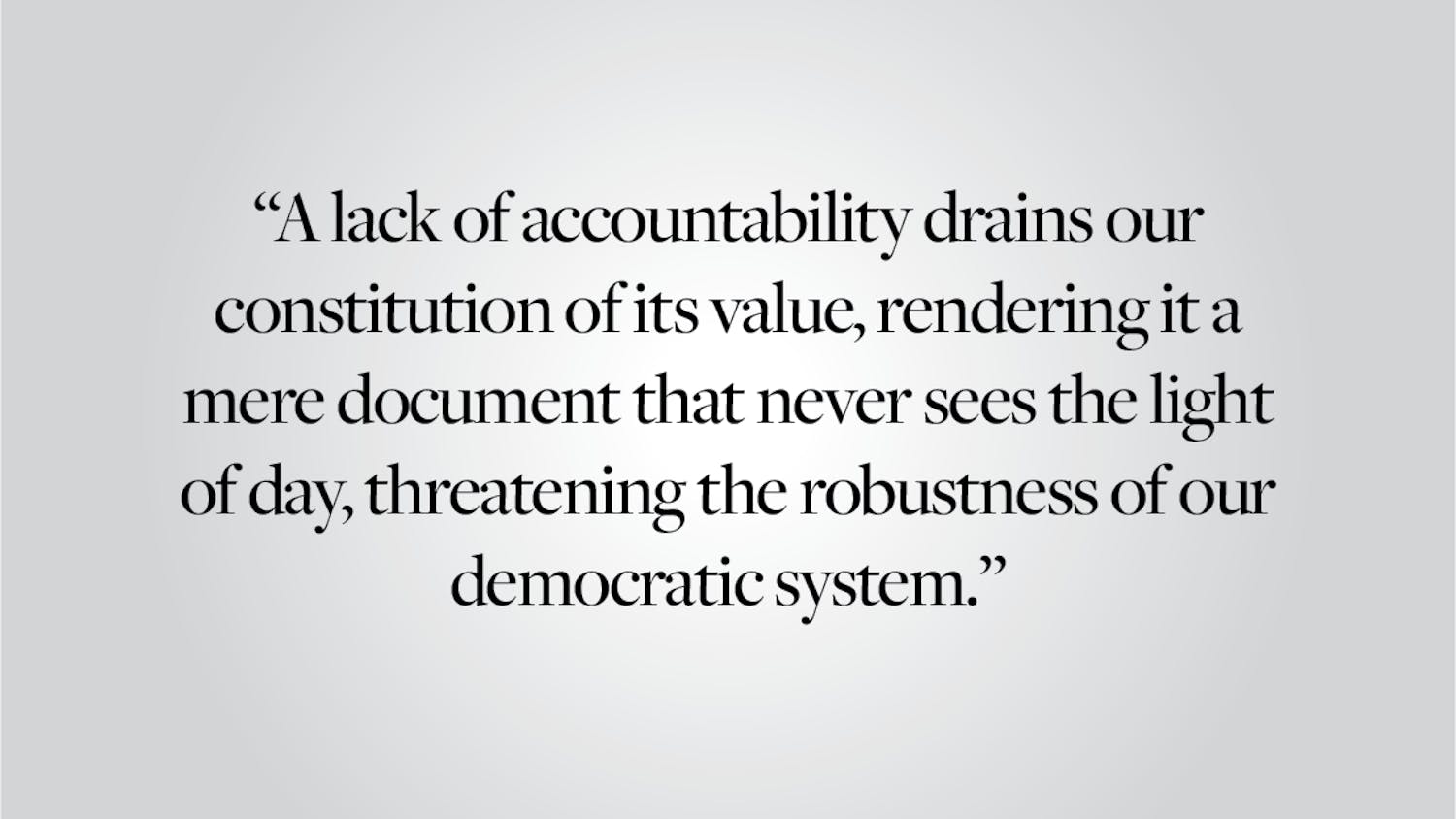After reading Matthew Shorter’s ’17 op-ed, (“UCS needs to be transparent,” Sept. 28) in yesterday’s paper, I realized that the expectations we hold for our student leaders — and the necessity for their own safe space — needed to be discussed.
Shorter began his op-ed by attempting to explain what a safe space is supposed to be and then notes his disdain toward the Undergraduate Council of Students’ decision to create a safe space for its own members. He claims that the concept of a safe space has been “shamelessly co-opted to prevent criticism of the student government.” What Shorter fails to realize is that a safe space is not created to prevent criticism or to hide a secret agenda, but rather to make an environment where marginalized people or people with certain experiences feel comfortable talking about issues that affect them personally. Like Sara Ahmed wrote in her essay “Against Students,” the aim of a safe space is to “enable conversations about difficult issues to happen: so often the difficulties people wish to talk about end up being re-enacted within spaces, which is how they’re not talked about.”
Another point that Shorter misses is that the students involved in any sort of group or club cannot detach themselves from their own identities and experiences. These identities and experiences are sometimes what urge students to do the work that they do. Dismissing this places a ridiculous expectation on our student leaders, asking them to be stoic and indifferent if they want to be seen as “good” leaders. This should not be the case.
If UCS President Viet Nguyen ’17 felt a safe space was needed to talk about issues of sexual assault and mental health, then perhaps there are personal conversations that needed to be had around these issues between administrators and UCS members. Perhaps UCS needed to discuss the backlash they received for their recent announcements and how this backlash might have affected certain members. Perhaps they wanted to create an environment where UCS members who tend to hold back could freely express themselves without the pressure of knowing anything they said could be quoted by The Herald. It could have been anything. The point is that when people — especially marginalized and underrepresented people — make a call for a safe space, you need to respect that — no matter the position they hold. If you don’t respect that, then you don’t respect the idea of a safe space at all.
On the point of excluding the press, particularly The Herald, I think it’s important to remember the tension that still exists between student activist groups and The Herald due to the insensitive columns published last fall. Considering The Herald has done nothing to ease these tensions beyond the apology note it published after the columns were taken down, it makes sense to exclude its reporters from a designated safe space.
Instead of criticizing UCS and its president, Shorter should instead turn his attention to the issues that create the need for safe spaces within UCS and Brown in the first place. Maybe the University is not providing our student government with enough support. As Shorter mentioned, UCS can be inaccessible to many students on campus. Did you know that UCS positions are unpaid? Perhaps that’s part of the problem. Holding open meetings isn’t going to fix anything if members don’t feel comfortable voicing the true issues that might be preventing them from doing more for this campus. If you’re not interested in holding the University accountable for sustaining our student government leaders, then you don’t need to be informed on what is said when members discuss these issues.
Arely Diaz-Loza ’17 can be reached at arely_diaz-loza@brown.edu.
Please send responses to this opinion to letters@browndailyherald.com and other op-eds to opinions@browndailyherald.com.




